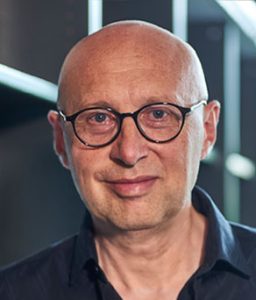
Stefan Hell
MPI Göttingen and
DKFZ Heidelberg
Germany
EMBL Course
Proof of COVID-19 vaccination or recovery is required to attend this on-site course. Please see EMBL’s COVID-19 safety policy for on-site events.
The course aims to train biological microscopy users in two forms of super-resolution light microscopy, Stimulated Emission Depletion (STED) Microscopy and Minimal photon fluxes (MINFLUX). Both techniques require technical understanding of the process and instrumentation, training in the method specific requirements of sample preparation and in the acquisition procedures and an understanding of how to further analyze the acquired image data. It is the aim of the course to provide the tools for the successful execution of nanoscopy experiments with these two distinct methods. The course should also allow the participants to understand the specific benefits of the different techniques and thus help them in choosing the right approach for their experimental needs.
Aimed at early stage researchers (e.g. pre- or postdoctoral level) in life science with access to STED and MINFLUX super-resolution microscopy equipment and at imaging facility staff involved in training and supporting scientists using STED and MINFLUX super-resolution microscopy. Participants should have an immediate need to apply these techniques. The course will have a strong emphasis on practical know-how needed to leverage the latest developments in STED and MINFLUX microscopy. It is therefore equally suited for scientists who already rely on super-resolution microscopy for their research and researchers applying advanced imaging techniques who want to extend their practical knowledge.
At the end of the course, participants will be able to plan an experiment relying on STED and MINFLUX super-resolution microscopy, prepare their samples accordingly, record images using optimal conditions and settings and analyse them with appropriate methods and tools.
The EMBL Imaging Centre training activities are generously supported by the Boehringer Ingelheim Foundation.
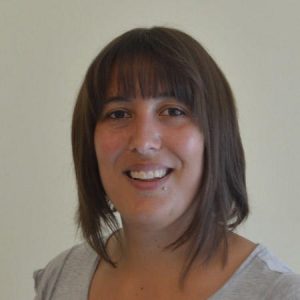
Freie Universität Berlin
Germany
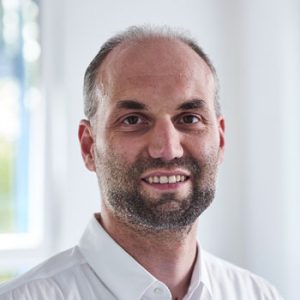
Abberior Instruments
Germany
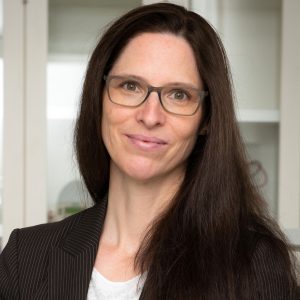
Universität Linz
Austria
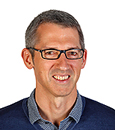
EMBL Heidelberg
Germany
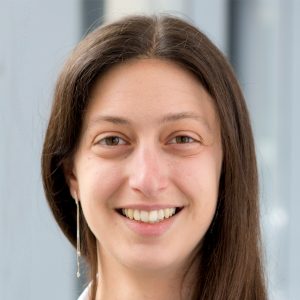
Max Planck Institute for
Medical Research
Germany
Max Planck Institute
for Molecular Cell
Biology and Genetics
Germany
Max Planck Institute for
Multidisciplinary
Sciences
and
University Göttingen
Germany
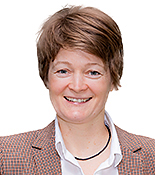
Euro-Bioimaging ERIC
Germany
Max Planck Institute for
Multidisciplinary
Sciences
and
University Göttingen
Germany
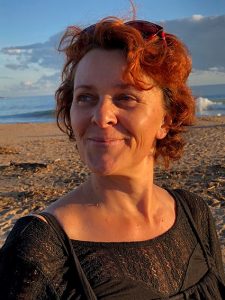
Institut NeuroMyogène, Physiopathologie and Genetics of Neuron and Muscle
France
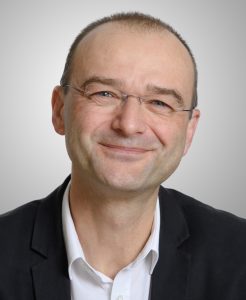
Max Planck Institute for
Multidisciplinary
Sciences
and
University Göttingen
Germany
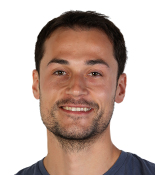
EMBL Heidelberg
Germany
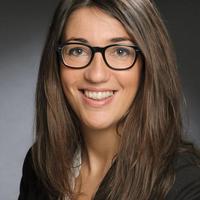
Karolinska Institute
of Technology
Sweden
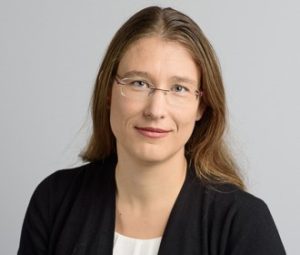
University of Groningen
The Netherlands
Institut Ruđer Bošković
Croatia
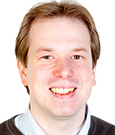
EMBL Heidelberg
Germany
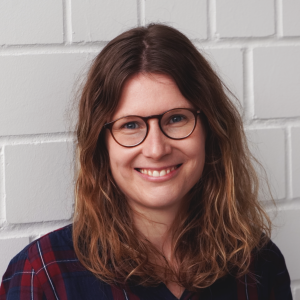
Abberior Instruments
Germany
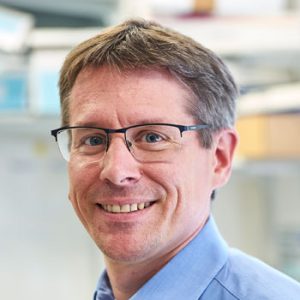
Abberior Instruments
Germany
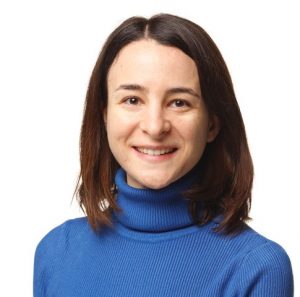
EMBL Heidelberg
Germany
Got something to say? Tweet it with #EMBLSTED_MINFLUX
| Time (Europe/Berlin) | Speaker | Location |
|---|---|---|
| 08:40 | Bus from ISG Hotel | |
| 09:00 – 09:30 | Welcome and House notes (incl safety) | the Imaging Centre Lecture Hall |
| 09:30 – 09:45 | Course overview | the Imaging Centre Lecture Hall |
| 09:45 – 11:00 | Participant introduction | the Imaging Centre Lecture Hall |
| 11:00 – 11:20 | Coffee Break | the Imaging Centre Lecture Hall |
| 11:20 – 12:20 | Lecture: Overview of Super-resolution Techniques Marko Lampe – EMBL Heidelberg, Germany Sebastian Schnorrenberg – EMBL Heidelberg, Germany | the Imaging Centre Lecture Hall |
| 12:20 – 13:05 | Lunch | EMBL Canteen |
| 13:05 – 14:05 | Lecture: Complementary use of STED and MINFLUX to study neuronal synapses Elisa d’Este – Max Planck Institute for Medical Research, Germany | the Imaging Centre Lecture Hall |
| 14:15 – 16:30 | Practicals (four in parallel) | Imaging Centre Labs |
| 16:30 – 17:00 | Coffee Break | the Imaging Centre Lecture Hall |
| 17:00 – 19:00 | Practicals (four in parallel) | Imaging Centre Labs |
| 19:00 – 20:00 | Dinner | EMBL Canteen |
| 20:00 | Departure to Hotel | ATC Entrance |
| Time (Europe/Berlin) | Speaker | Location |
|---|---|---|
| 08:40 | Bus from ISG Hotel | |
| 09:00 – 09:10 | Overview of the day | the Imaging Centre Lecture Hall |
| 09:10 – 10:00 | Lecture: Catching dynamics with reversible switching: From RESOLFT to STARSS Ilaria Testa – Karolinska Institute of Technology, Sweden | the Imaging Centre Lecture Hall |
| 10:00 – 11:00 | Lecture: Labeling biomolecules for live-cell nanoscopy Grazvydas Lukinavicius – Max Planck Institute for Multidisciplinary Sciences and University Göttingen, Germany | the Imaging Centre Lecture Hall |
| 11:00 – 11:30 | Coffee Break | the Imaging Centre Lecture Hall |
| 11:30 – 12:30 | Lecture: STED & MINFLUX analysis of active zones Tobias Moser – Max Planck Institute for Multidisciplinary Sciences and University Göttingen, Germany | the Imaging Centre Lecture Hall |
| 12:30 – 13:30 | Lunch | EMBL Canteen |
| 13:30 – 14:30 | Lecture: Focusing on mitochondria (with nanoscopy) Stefan Jakobs – Max Planck Institute for Multidisciplinary Sciences and University Göttingen, Germany | the Imaging Centre Lecture Hall |
| 14:30 – 16:30 | Practicals (four in parallel) | Imaging Centre Labs |
| 16:30 – 17:00 | Coffee Break | the Imaging Centre Lecture Hall |
| 17:00 – 19:00 | Practicals (four in parallel) | Imaging Centre Labs |
| 19:00 – 20:00 | Tips & Tricks with concurrent Pizza Dinner | EMBL Canteen |
| 20:00 | Departure to Hotel | ATC Entrance |
| Time (Europe/Berlin) | Speaker | Location |
|---|---|---|
| 08:40 | Bus from ISG Hotel | |
| 09:00 – 09:10 | Overview of the day | the Imaging Centre Lecture Hall |
| 09:10 – 11:00 | Practicals (four in parallel) | Imaging Centre Labs |
| 11:00 – 11:30 | Coffee Break | the Imaging Centre Lecture Hall |
| 11:30 – 12:30 | Lecture: STED in Membrane Biology Alf Honigmann – Max Planck Institute for Molecular Cell Biology and Genetics, Germany | the Imaging Centre Lecture Hall |
| 12:30 – 13:30 | Lunch | EMBL Canteen |
| 13:30 – 14:30 | Lecture: Unraveling cell division by STED: from archaea to human cells Rifka Vlijm – University of Groningen, The Netherlands | the Imaging Centre Lecture Hall |
| 14:30 – 15:30 | Lecture: Super-resolution imaging of nuclear pore complexes Jan Ellenberg – EMBL Heidelberg, Germany This lecture will be pre-recorded | the Imaging Centre Lecture Hall |
| 15:30 – 16:00 | Coffee Break | |
| 16:00 – 18:00 | Practicals (four in parallel) | Imaging Centre Labs |
| 18:00 – 19:00 | Dinner | EMBL Canteen |
| 19:00 – 19:30 | Departure to Hotel | ATC Entrance |
| Time (Europe/Berlin) | Speaker | Location |
|---|---|---|
| 08:40 | Bus from ISG Hotel | |
| 09:00 – 09:10 | Overview of the day | the Imaging Centre Lecture Hall |
| 09:10 – 10:00 | Practicals (four in parallel) | Imaging Centre Labs |
| 11:00 – 11:30 | Coffee Break | the Imaging Centre Lecture Hall |
| 11:30 – 12:30 | Lecture: Mitotic spindles under the STEDoscope Kruno Vukušić – Institut Ruđer Bošković, Croatia | the Imaging Centre Lecture Hall |
| 12:30 – 13:30 | Lunch Break | EMBL Canteen |
| 13:30 – 14:30 | Lecture: The axon at the nanoscale – challenges and opportunities Maren Engelhard – Universität Linz, Austria | the Imaging Centre Lecture Hall |
| 14:30 – 15:00 | Lecture: Euro-BioImaging: Your gateway to imaging excellence Antje Keppler – Euro-Bioimaging ERIC, Germany This lecture will be presented remotely | the Imaging Centre Lecture Hall |
| 15:00 – 15:30 | Coffee Break | the Imaging Centre Lecture Hall |
| 15:30 – 17:30 | Practicals (four in parallel) | Imaging Centre Labs |
| 17:45 | Return to Hotel | |
| 18:40 | Social activity in downtown Heidelberg | Firebowl |
| Time (Europe/Berlin) | Speaker | Location |
|---|---|---|
| 08:40 | Bus from ISG Hotel | |
| 09:00 – 09:10 | Overview of the day | the Imaging Centre Lecture Hall |
| 09:10 – 11:00 | Practicals (four in parallel) | Imaging Centre Labs |
| 11:00 – 11:30 | Coffee Break | the Imaging Centre Lecture Hall |
| 11:30 – 12:30 | Keynote Lecture: MINFLUXnanoscopy and related matters Stefan Hell – MPI Göttingen and DKFZ Heidelberg, Germany | the Imaging Centre Lecture Hall |
| 12:30 – 12:45 | Group photo | |
| 12:45 – 13:30 | Lunch | EMBL Canteen |
| 13:30 – 14:30 | Lecture: Live cell STED imaging Francesca Bottanelli – Freie Universität Berlin, Germany This lecture will be presented remotely | the Imaging Centre Lecture Hall |
| 14:30 – 15:30 | Lecture: From SLMS to MINFLUX nanoscopy using cell organelles Karine Monier – Institut NeuroMyogène, Physiopathologie and Genetics of Neuron and Muscle, France | the Imaging Centre Lecture Hall |
| 15:30 – 16:00 | Coffee Break | the Imaging Centre Lecture Hall |
| 16:00 – 18:00 | Practicals (four in parallel) | Imaging Centre Labs |
| 18:00 – 19:30 | Q&A on STED and MINFLUX | the Imaging Centre Lecture Hall |
| 19:30 – 20:30 | Dinner | EMBL Canteen |
| 20:30 | Departure to Hotel |
| Time (Europe/Berlin) | Speaker | Location |
|---|---|---|
| 08:40 | Bus from ISG Hotel | |
| 09:00 – 09:10 | Overview of the day | the Imaging Centre Lecture Hall |
| 09:10 – 11:00 | Practicals (four in parallel) | Imaging Centre Labs |
| 11:00 – 11:30 | Coffee Break | the Imaging Centre Lecture Hall |
| 11:30 – 12:30 | Practicals (four in parallel) | Imaging Centre Labs |
| 12:30 – 13:30 | Lunch | EMBL Canteen |
| 13:30 – 15:00 | Practicals (four in parallel) | Imaging Centre Labs |
| 15:00 – 15:30 | Coffee Break | the Imaging Centre Lecture Hall |
| 15:30 – 16:15 | Final discussion round | the Imaging Centre Lecture Hall |
| 16:15 – 16:45 | Feedback round and closing remarks | the Imaging Centre Lecture Hall |
| 17:00 | Bus to Heidelberg train station and city centre | ATC Entrance |
The course is limited to 20 participants (subject to change due to pandemic related capacity restrictions). For selection purposes, please note that your application will not be considered without a letter of motivation.
Registration fees include admission, course materials, COVID-19 safety measures, meals and coffee breaks.
Participants are expected to book and pay their own accommodation and travel expenses.
| Academia | €500 |
| PhD Student | €500 |
| Industry | €1100 |
The registration fee should be paid only after acceptance to the course. The results will be announced approximately 2-3 weeks after the application deadline.
After you have logged in and successfully registered, you will receive an email asking you to submit your motivation letter. Click on the link provided and enter your motivation letter in the text box provided. Alternatively you can submit your motivation letter by clicking on the link on the confirmation page directly after registering.
Instructions
Please note:
For more detailed information, follow the instructions provided in our video on how to submit a course motivation letter.
For further information about registration and motivation letter submission please refer to the FAQ page.
Limited financial assistance is provided by Abberior in the form of registration fee waivers. Availability is limited to participants attending on-site events in Heidelberg and will be indicated during the motivation letter submission process.
Your place in the meeting is only confirmed by paying the registration fee, which is mandatory even when receiving a fee waiver.
The fee waiver will cover the registration sum that you have paid to attend the course.
You may apply for financial assistance when submitting your motivation letter. In your application, you will be asked to answer questions regarding why your lab cannot fund your attendance and how your attendance will make a difference to your career. Application for financial support will not affect the outcome of your registration application.
The scientific organisers will select the recipients of all financial assistance during the motivation letter or abstract selection process. Results will be announced approximately 6-8 weeks before the event start date, however for some events this may be delayed. Selection results do not impact your admission to the meeting. Selection is based on your current work or study location, the reasons for needing financial support and the impact this event will have on your career.
Costs will be reimbursed after the meeting only once a reimbursement form has been received.
See our list of external funding opportunities and information on attending a conference as an event reporter.
For further information about financial assistance please refer to the FAQ page.
Single rooms have been reserved for 7 nights (18-25 September 2022) at the ISG Hotel. After the selection process, selected participants should contact the hotel directly to make a booking (booking code EIC22-01). We recommend that all course participants stay at the ISG Hotel which is the dedicated hotel for the course.
Shuttle buses will go from the ISG Hotel to EMBL and back, mornings and evenings. A bus schedule and location of the bus stops will be made available prior to the meeting.
Address: EMBL Heidelberg, Meyerhofstraße 1, 69117 Heidelberg, Germany
For further information on getting to EMBL Heidelberg visit our Travel Information page.
For enquiries about accommodation and local transportation please refer to the FAQ page.
Please find additional information including FAQs, terms and conditions, COVID-19 safety policy and travelling to EMBL on our Information for Participants page.
COVID-19 information for on-site events at EMBL Heidelberg can be found in our COVID-19 FAQs.

Date: 19 - 24 Sep 2022
Location: EMBL Heidelberg
Venue: EMBL Imaging Centre
Deadline(s):
Application: Closed
Organisers:
Contact: Virginia Pierini